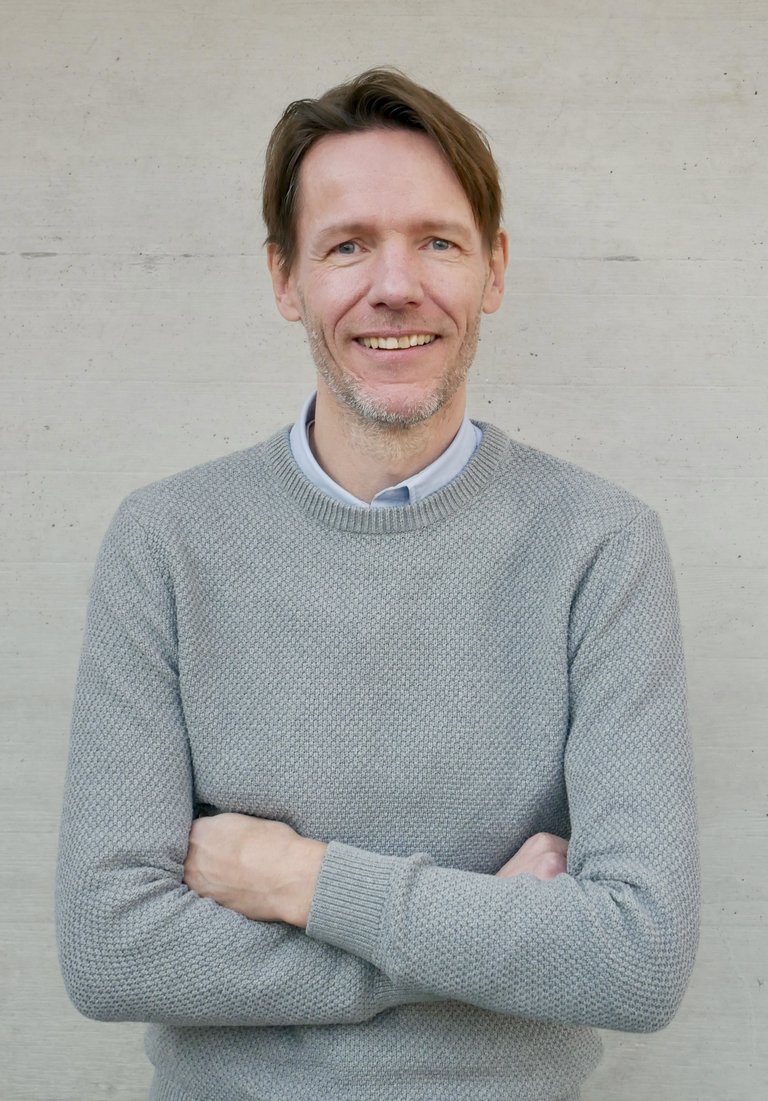Univ.-Prof. Dr. Wilfred Uunk
Institutsleiter Institut für Soziologie
Raum: w. 2.06, Universitätsstraße 15, 2. Stock West, A-6020 Innsbruck
E-Mail: Wilfred.Uunk@uibk.ac.at
Tel.: +43 512 507 73445
virtuelle Sprechstunde: Donnerstag von 13:00 bis 14:00 Uhr
Wilfred Uunk ist Professor für Soziologie. Er kommt aus den Niederlanden, hat Soziologie in Utrecht studiert und promovierte 1996 in Nijmegen zum Thema Homogamie (Similarität in Partnermerkmalen). Zwischen 1996-1998 war Uunk Post-Doc am Max-Planck-Institut für Bildungsforschung in Berlin (Thema: Jobmobilität in Ost und West-Deutschland) und von 1998-2002 Post-Doc in Utrecht (Thema: Wiederverheiratung). Anschließend arbeitete er bis 2017 an der Universität von Tilburg; zuerst als Post-Doc, dann als Junior Professor für Soziologie (Themen: Scheidung, Gender und Arbeit, Migration, Welfare Solidarity). Von 2017-2020 war Uunk wissenschaftlicher Mitarbeiter mit einem Lehrstuhl für Soziologie an der Universität Bamberg (Thema: Gender und Bildung) und von 2020-2021 Senior Researcher bei der Hochschule Den Haag. Im Mai 2021 nahm er schließlich eine Professur in Makro-Soziologie und sozialer Ungleichheit am Institut für Soziologie an der Universität Innsbruck an.
2023
Beier, L., Minello, A., Uunk, W.J.G., Pratter, M., Yastrebov, G. & Blossfeld, H.-P. (2023). The Emergence of Gender-Specific Competence Patterns and Decision Making During the Course of Educational and Job Careers in Germany. Pp 59-86 in: Weinert, S., Blossfeld, G. J., & Blossfeld, H.-P. (Eds.) (2023). Education, Competence Development and Career Trajectories: Analysing Data of the National Educational Panel Study (NEPS). Methodology of Educational Measurement and Assessment. Springer Cham. https://doi.org/10.1007/978-3-031-27007-9
Blossfeld, P., Pratter, M., Uunk, W., eds. (2023). Gender-specific inequalities in the education system and the labor market. Lausanne: Frontiers Media SA. doi: 10.3389/978-2-8325-3189-1 [ebook]
Uunk, W. (2023). Does the gender-equality paradox hold on the micro level? An assessment of the effect of household wealth on gendered math intentions for 60 countries. Frontiers in Education, 8. https://www.frontiersin.org/articles/10.3389/feduc.2023.1155492
Uunk, W., & Hoffmann, P. (2023). Do Personality Traits Moderate the Effects of Cohabitation, Separation, and Widowhood on Life Satisfaction? A Longitudinal Test for Germany. Journal of Happiness Studies, 24(1), 141–157. https://doi.org/10.1007/s10902-022-00573-8
2022
Uunk, W. (2022). Replication files for „Do personality traits moderate the effects of cohabitation, separation, and widowhood on life satisfaction? A longitudinal test for Germany“. https://doi.org/10.17605/OSF.IO/VPR4Y
Uunk, W.J.G. (2022). We Are Not That Different: A Closer Look at Migrant and Non-migrant Cultural Attitudes in the Netherlands. Pp. 79-93 in: J. Elahi, S. Trienekens, H. Ramsoedh (Eds.), Against Better Judgement: Rethinking Multicultural Society. Leiden: Brill.
2020
Uunk, W.J.G. (2020). Staat van de Haagse economie 2020 [State of the Hague Economy 2020]. Centre of Excellence Governance of Urban Transitions, the Hague University of Applied Sciences.
Uunk, W., Beier, L., Minello, A., & Blossfeld, H.-P. (2020). Warum wählen Frauen seltener MINT-Studienfächer? Der Einfluss der Mathematikleistung, geschlechtsspezifischer Lebensziele und der sozialen Herkunft. Uni.vers Forschung, 1, 32-35.
Uunk, W.J.G. and Oorschot, W. van. (2020). Economic fluctuation and shifts in popular solidarity with unemployed people. Pp. 91-116 in: I. van Hoywegen, V. Pulignano, and G. Meyers (Eds.), Shifting solidarities. Trends and developments in European Societies. London: Palgrave Macmillan.
Uunk, W., & Pratter, M. (2020). Gender differences in higher education in Germany: Are women under- or overrepresented at university, and why? Educational Research and Evaluation, 26(7–8), 414–432. https://doi.org/10.1080/13803611.2021.1991810
Zanasi, F., Sieben, I., & Uunk, W. (2020). Work history, economic resources, and women’s labour market withdrawal after the birth of the first grandchild. European Journal of Ageing, 17(1), 109–118. https://doi.org/10.1007/s10433-019-00525-x
2019
Lersch, P. M., & Uunk, W. (2019). Replication files for „The Effect of Regional Gender-Role Attitudes on Female Labour Supply“. https://doi.org/10.17605/OSF.IO/KR2YB
Uunk, W., & Lersch, P. M. (2019). The Effect of Regional Gender-Role Attitudes on Female Labour Supply: A Longitudinal Test Using the BHPS, 1991–2007. European Sociological Review, 35(5), 669–683. https://doi.org/10.1093/esr/jcz026
Uunk, W., & van Oorschot, W. (2019). Going with the Flow? The Effect of Economic Fluctuation on People’s Solidarity with Unemployed People. Social Indicators Research, 143(3), 1129–1146. https://doi.org/10.1007/s11205-018-2023-z
Uunk, W., Beier, L., Minello, A., & Blossfeld, H.-P. (2019). Studienfachwahl MINT durch Frauen – Einfluss von Leistung in Mathematik, Lebenszielen und familialem Hintergrund. MINT oder CARE? : Gendersensible Berufsorientierung in Zeiten digitalen und demografischen Wandels. https://fis.uni-bamberg.de/handle/uniba/46804
Uunk, W.J.G., Beier, L. Minello, A., Blossfeld, H.-P. (2019). Studienfachwahl MINT durch Frauen–Einfluss von Leistung in Mathematik, Lebenszielen und familialem Hintergrund. Pp. 185-199 in: E. Schlemmer and M. Binder (Eds.), MINT oder CARE? Gendersensible Berufsorientierung in Zeiten digitalen und demografischen Wandels. Weinheim, Basel: Beltz/Juventa.
Univ.-Prof. Dr. Wilfred Uunk forscht zu verschiedenen Formen der sozialen Ungleichheit (z.B. nach Gender und Migrationsstatus). Seine Forschung ist oft ländervergleichend und er nutzt quantitative Methoden der Sozialforschung.
Funding:
2023
FWF Funding “Einzelprojekt” for the project “Affluence and the gender gap in STEM study choices” (P 36789), March 2023, E274.995. Link zur FWF-Website
2020
DFG Funding ‘Eigene Stelle’ for the project “Unraveling the gender gap in the choice of academic STEM majors: an integrative approach”, November 2020, E300.000
Nähere Informationen zu seinem Forschungsbereich finden Sie auf der Website des Forschungsbereichs Makrosoziologie.
WS 2023/ 24
VO und PS Strukturen und Wandel moderner Gesellschaften
(BA Soziologie, Universität Innsbruck)
VO und SE Klassische soziologische Theorie
(MA Soziologie, Universität Innsbruck)
Weitere aktuelle und vergangene Lehrveranstaltungen von Prof. Uunk finden Sie im Lehrverzeichnis der Universität Innsbruck.

